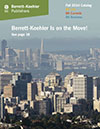"Shuman writes in a surprisingly lively and occasionally self-deprecating style uncommon to business texts, and his research is backed with hundreds of source notes.... his 'don't get mad, get even' ideology will resonate with forward-thinking consumers and small business owners."
--Publishers Weekly,
"You will gasp, chuckle and recoil at this myth-busting story of category killers and community highjackings. Illusions abound in big business, but the biggest tooth fairy of all is the assertion that megalithic corporations save us money. The Small-Mart Revolution details an economic uprising based on decency and common sense that is coming to a neighborhood near you: businesses whose interests align with yours."
--Paul Hawken, author of The Ecology of Commerce
"This book is power. A master myth-buster springs us all from a deadly trap: the notion that there's something unstoppable and efficient about a world gone Wal-Mart. Shuman's fun-to-read prose ignites us with the startling facts and the confidence surge we need to recreate locally owned, community-nourishing economies. It's not only possible, it's happening. Hurrah, Michael Shuman!"
--Frances Moore Lappé, author of Democracy's Edge
"If you, like I, wish sometimes that it were clearer how to simplify your life and cast your lot with ecological sanity and robust democracy in communities of mutual support, then this is the book for us. Drawing on his extensive experience in the complexities, challenges, and imperatives of local ownership of the economy, Shuman convinces us that we have the power to support this compelling movement and provides us the tools and the motivation to get on with the work--before it is too late."
--Diana Chapman Walsh, President, Wellesley College
"The Small-Mart Revolution is an impressive blueprint for how local businesses and small communities can prosper in a global economy. Its prose is lively, interesting, and accessible for the general reader, but professionals, policymakers, and academics should find its concepts, arguments, and data engaging as well."
--Thomas Michael Power, Chair, Economics Department, University of Montana
 0 items in cart
0 items in cart









